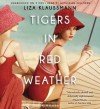Currently reading
Frackistan: The Promise and Peril of America’s Energy Revolution
Savaging the Dark
The End-of-Life Handbook: A Compassionate Guide to Connecting with and Caring for a Dying Loved One
Final Journeys: A Practical Guide for Bringing Care and Comfort at the End of Life
A Better Way of Dying: How to Make the Best Choices at the End of Life
Handbook for Mortals: Guidance for People Facing Serious Illness
Change Anything: The New Science of Personal Success
S.
Dances in Two Worlds: A Writer-Artist's Backstory
Tigers in Red Weather
The Goldfinch (Audio)
 Did...
Did...Did I just read a very broad and updated adaptation of [b:A Christmas Carol|5326|A Christmas Carol|Charles Dickens|https://d202m5krfqbpi5.cloudfront.net/books/1165518693s/5326.jpg|3097440]?
...I sort of feel like I did if I step back far enough, tilt my head, and look at it in just the right light.
But, no. That's probably pushing it and, really, there are tons of redemption(ish) stories like that one so it's probably not a thing at all. I'm just being a dork, pretty much.
I do wish I were one of those highly erudite people who could translate all the feelings in my mind, all the vague connections I'm grasping to make, all the moments in which I think I actually realized something into words that illustrate the framework of my thoughts. If I were more academic, I'd write some sort of paper on this book, something about the painting being the bridge to Theo's past while also being tangible evidence of survivor's guilt and also being the thing that sets him apart from everyone else; The Goldfinch, rather than the tragedy he lived through, becomes the embodiment of the horror of one day and gives him special status, known only to himself. I'd compare and contrast Andy and Boris then Boris and Hobie, Kitzy and Pippa, Andy's parents and Theo's parents, and discuss my thoughts on how two of the strongest forces in Theo's life are dead people.
But if I did that as myself, not as an academic - and I'd have to write it as myself because I am not an academic - it would all come out all wrong and I would only reveal the fact that I missed all the points of the whole story and that I am very shallow and unable to grasp meaningful concepts. I get in trouble for that at work all the time, actually.
I will admit I was really slow on the uptake throughout this whole story. Looking back over my status updates, I see this took me over an emotional roller coaster but I never came away from the book feeling sad or angry or exhilarated. I merely had this overall feeling of happily enjoying it all...not too different from Theo, actually, merely existing without thinking. At least, that is what I'd thought of Theo until the last quarter of the book when I finally started to understand what had been happening all along, when I realized I'd been wrong to think, "Man, this kid is dealing with what he's gone through pretty well, all things considered." I think it was when adult Theo forgot about Popper that I realized I didn't actually like the guy, that he wasn't who I'd thought, that he is more than just flawed, he's shattered and sort of being held together with dingy, shredding bits of duct tape and memories.
I loved all the talk about art, from paintings to music to antiques, about what it means, about why it's all important, about specific pieces. I understand nothing at all about art so always appreciate explanations lowered to my common denominator. Running alongside the descriptions of art were the descriptions of relying on drugs to dampen the world, something I also don't understand and was also able to appreciate as it was explained in simple, easy-to-grasp terms.
I'm done with the book, now. I'm not going to think about it or try to come up with some brilliant review - we're all stuck with this one. But I was dazzled by the whole thing. I'm not sure I know why. It didn't go where I necessarily expected nor did it end the way I thought it might and all the philosophy at the end made me laugh because, really, what does he know? but I also didn't really care where it went, I just wanted to be along for the ride.
I had a couple of practical moments in which I was kicked out of the story: the use of repetition of practically the same sentence in the same paragraph bugged me and also, why the heck was Gyuri (I listened, remember. I have no idea how the driver's name was spelled) always caroming around corners and tossing his passengers into the doors? It must have been important because it was mentioned at least twice.
These things have nothing to do with anything, they were just anomalies that made my brain go, "Hey, wait, what?"; they were little hiccups.
Had I been the publisher, I would have strongly argued for the subtitle of People Who Have Loved Beautiful Things, which is not only a direct quote from the book but also pretty much a giant theme throughout.












